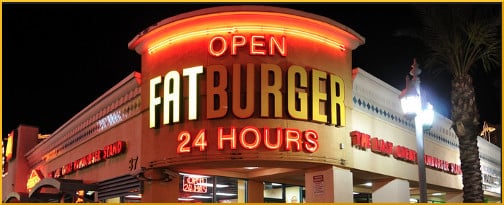
In “Addiction Model Intervention for Obesity in Young People,” which Dr. Pretlow wrote with Carol M. Stock, we find this paragraph:
— Whenever you have money in your pocket, you end up going to the store on the corner to buy candy.
— When you pass by the donut store on the way home from school, you can never resist getting a donut.
— Whenever your brother puts his soda pop in the fridge, you always drink it.
Money in your pocket, the donut store, and your brother’s soda pop in the fridge are your problem food triggers.
Between them, McDonald’s and Coke have all these triggers covered. Any kid cruising around with money in his or her pocket is likely to roll into a convenience store for a sugar-sweetened beverage, or a fast-food joint for fizzy drink and a couple thousand calories worth of pseudo-food full of mystery ingredients. The best solution, of course, would be not to carry money or a credit card, but in today’s world that is unlikely to happen.
The second trigger is even less avoidable. They are everywhere — the donut stores, the fast-food restaurants, the food trucks, the mini-marts, the vending machines — and cannot be dodged. The only solution there is to make yourself a promise and keep it.
The third example, the brother who keeps his soda in the fridge, is emblematic of all unhelpful family members who leave tempting goodies accessible, especially within visual range. The constant cruel reminders are so hard to resist. If someone you know is battling obesity, don’t be that troll.
Dr. Claire McCarthy’s advice starts out strict, then she walks it back a little, to land on a doable compromise:
Don’t give your children any sugar-sweetened beverages. None. Zero. Zilch. Well, I suppose once in a blue moon, like at a special restaurant outing, is okay. But don’t have any soda or sugared juices in the house. They are calories your kid just doesn’t need (actually, nobody in your house needs them).
We have seen how some parents are irresponsible enough to give soda to babies (and then blame the babies!). Other parents are willing to try anything to keep their kids off sugar-sweetened beverages, including an appeal to the medial orbital frontal cortex, where the brain generates the ability to imagine a future reward, and the resolve to hold out for delayed gratification.
MedicalDaily.com published the story of the Sarisky family of Montana, in which the parents offered their two boys the “no-pop challenge” — a year without fizzy sodas or sports drinks, or even fruit juice. The deal was, each boy could either have $100 on the spot and pass up the challenge, or accept it and win $500 when the year ended.
Andrew went for the immediate gratification, but 10-year-old Jon opted for the fivefold reward. Just to make it official, the parents wrote up a fancy contract full of legalese, including a clause stating that it was a zero-tolerance agreement with no recourse to a second chance.
Before officially starting his year of abstinence, Jon enjoyed one last orange soda. He then spent the year on water and milk, and duly received his $500. Not every family could afford such an experiment, of course, and some don’t believe in what they see as bribery. But it is useful and encouraging to know that a person is capable of setting limits and ignoring triggers when a comprehensible and reliable reward is at stake.
Your responses and feedback are welcome!
Source: “Addiction Model Intervention for Obesity in Young People,” Weigh2Rock.com, 11/10/14
Source: “The four habits that can keep your child at a healthy weight’,” Boston.com, 08/23/12
Source: “Soda Pop Challenge Success: Sixth Grader Gets $500 After Quitting Soda For A Year,” MedicalDaily.com, 01/04/15
Image by Michael Saechang

 FAQs and Media Requests:
FAQs and Media Requests: 











